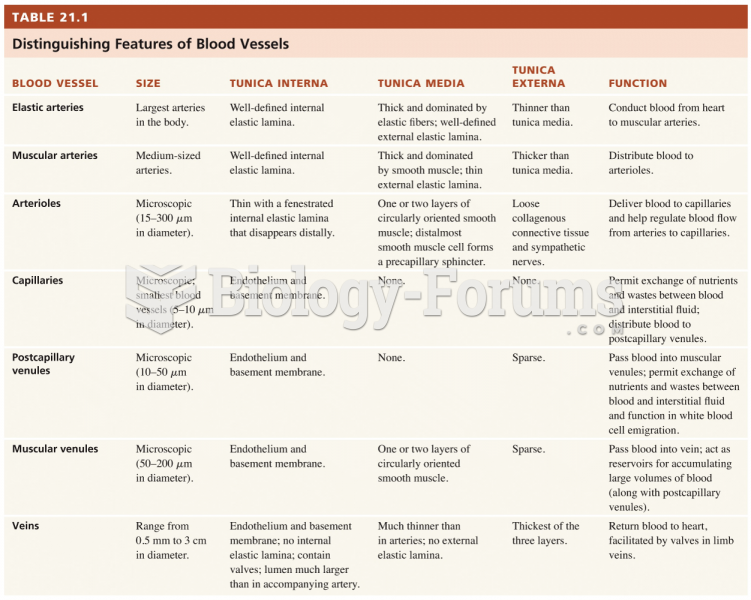|
|
|
Since 1988, the CDC has reported a 99% reduction in bacterial meningitis caused by Haemophilus influenzae, due to the introduction of the vaccine against it.
The toxic levels for lithium carbonate are close to the therapeutic levels. Signs of toxicity include fine hand tremor, polyuria, mild thirst, nausea, general discomfort, diarrhea, vomiting, drowsiness, muscular weakness, lack of coordination, ataxia, giddiness, tinnitus, and blurred vision.
Human stomach acid is strong enough to dissolve small pieces of metal such as razor blades or staples.
There are over 65,000 known species of protozoa. About 10,000 species are parasitic.
After 5 years of being diagnosed with rheumatoid arthritis, one every three patients will no longer be able to work.







